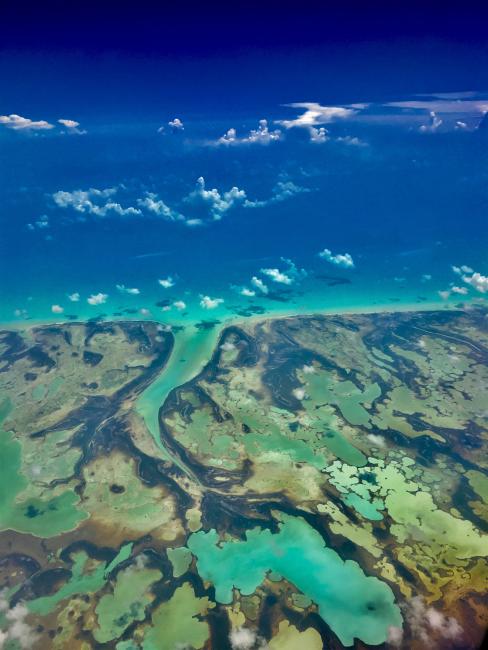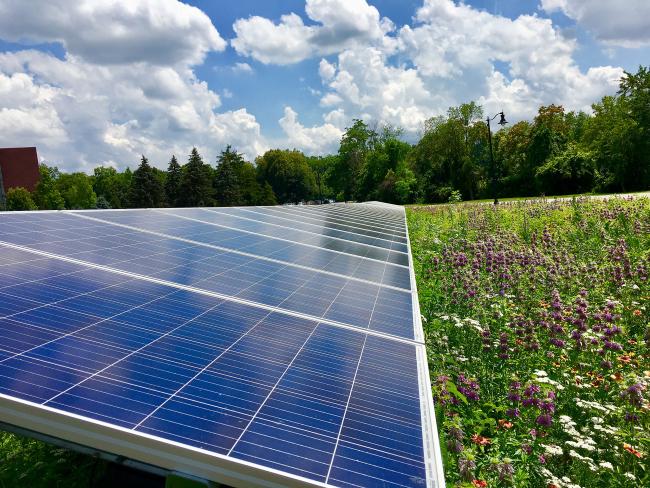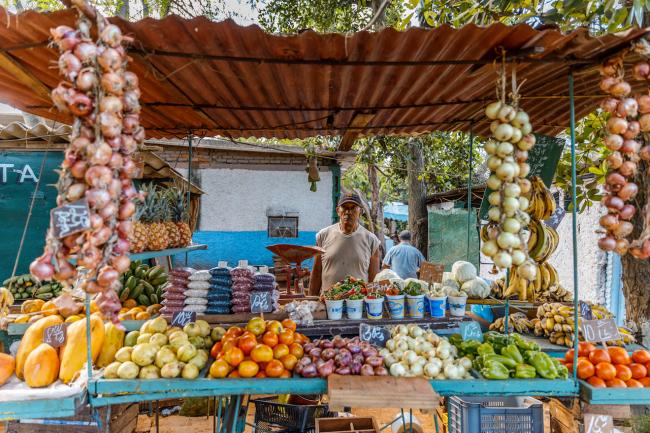NCSE held a photography contest in 2019 and invited photographers to share their most inspired work that demonstrated their interpretation of how science is used in service to the environment and society.
NCSE Photography Contest Winner

Author: Preston McLaughlin, Recent Graduate Student, The University of Texas at Austin.
Preston's photo, “Where the Ocean Meets the Sky,” is an aerial perspective that depicts an estuarine wetland landscape located in West Side National Park in the Bahamas.
NCSE Photography Contest Finalists

Author: Mark Gokavi, Communications Coordinator, Hanley Sustainability Institute and Sustainability Program.
Mark's photo, “Flowers. Power.” presents the solar array in front of Daniel J. Curran Place on the campus of the University of Dayton that provides about 10% of the building's energy needs. The photo also captures a pollinator prairie—a student-involved initiative—that was planted to complement the solar array. In mid-July, the plants and flowers were in full bloom, which attracted thousands of pollinators. The prairie plants with deep roots were chosen to retain water and cool the soil below the panels, which increases efficiency.

Author: Shea Grehan, Photographer, Shea Grehan Photography
Shea's photo, “Farmer's Market,” displays a local farmers' market near the neighborhood Bodega and located down the street from Organoponico Vivero Alamar in Havana, Cuba. Vivero Alamar is Havana's largest urban farm, spanning 27 hectares and feeding tens of thousands of people.
Author: Saikat Basu, Agrologist, Farming Smarter, Lethbridge, Alberta, Canada.
Saikat's photo, “Save our pollinators,” shows a drone fly loaded with pollen grains and attempting to come out from a pumpkin flower in an organic vegetable garden in southern Alberta, western Canada. Saikat's photo represents that it is important to inform others that bees, butterflies, and moths are not the only insect pollinators rendering cross-pollination services, and a vast number of our vegetables are dependent heavily upon insect pollinators for cross-pollination. However, insect pollinators across different ecosystems are demonstrating an alarming decline and conservation of insect pollinators is extremely important from the perspective of agriculture as they are responsible for pollinating several important food and industrial crops.